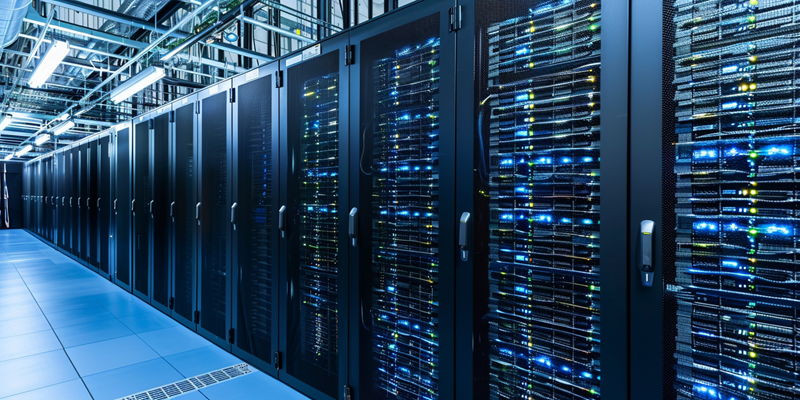Iceotope’s Precision Liquid Cooling technology, now at the heart of Sonic Edge’s AI Pods, stands as a transformative solution in data center thermal management. By adopting this liquid cooling approach, the partnership ushers in a new era where cooling efficiency is no longer bound by the limits of traditional air-cooled systems. The thermal conductivity of liquids far surpasses that of air, enabling the AI Pods to handle the intense heat generated by dense AI workloads with unprecedented effectiveness. This liquid cooling technique not only enhances performance but also contributes to substantial energy savings and a smaller environmental footprint.
Moreover, the versatility exhibited by these liquid-cooled modules, accommodating up to 450 kW of power capacity within their robust 12m by 4m frames, paves the way for diverse application scenarios. Be it on-premise or in remote locations, the Iceotope AI Pods are engineered to integrate seamlessly, complete with indispensable features such as UPS backup, fire suppression, and robust monitoring systems. This approach reduces the barriers for enterprises to adopt and leverage AI-driven initiatives, which are increasingly essential for competitive advantage.
Sustainable and Energy Efficient Modular Solutions
The partnership between Sonic Edge and Iceotope introduces a powerful narrative into the data center industry, centered around sustainable development and efficiency. In an era where energy consumption and carbon footprint are monumental concerns, the Iceotope AI Pods provide an emphatic answer. With the potential to reduce energy usage by up to 40% and carbon emissions considerably, these modules represent a significant stride towards environmentally responsible computing. Additionally, the dramatic 96% cut in water use showcases a commitment to preserving vital resources in the data center ecosystem.
The sustainable ethos of this partnership is not only environmentally significant but also translates into operational advantages for businesses embracing the technology. The reduction in energy consumption leads to lower operating costs, providing a compelling economic incentive for companies to transition to these next-generation AI data centers. Furthermore, for startups and fast-growing companies, the quick deployment time of just 16 weeks from order to delivery can be a game-changer, offering a swift path to high-performance AI capabilities without the lengthy and costly process of constructing traditional data center infrastructures.
Data Center Industry Trends and Future Outlook
Catering to the AI Infrastructure Demand
The industry is witnessing an insatiable demand for powerful computational resources to support AI applications, a demand that conventional data centers find challenging to meet. The combination of Sonic Edge’s modular approach and Iceotope’s advanced cooling solutions directly addresses this gap, offering unparalleled processing power in a rapidly deployable and scalable package. With its ability to house high-density AI compute with outstanding efficiency, the AI Pods cater precisely to the operational needs of AI research and commercial deployment. For startups and tech-savvy businesses, this means they now have access to state-of-the-art data center capabilities that can be swiftly scaled up as their computational demands grow.
The Potential Impact of Technological Advancements
Iceotope’s Precision Liquid Cooling technology is now powering Sonic Edge’s AI Pods, marking a significant advancement in cooling efficiency for data centers. This liquid cooling method outperforms traditional air-cooled systems, especially crucial for managing the heat from dense AI workloads effectively. Benefits include enhanced performance, energy savings, and a reduced environmental impact.
The AI Pods, housed in 12m x 4m frames, can handle up to 450 kW of power, showcasing their adaptability for both on-site and remote use. They’re equipped with key features such as UPS backup, fire suppression, and sophisticated monitoring, making AI deployment more accessible for businesses seeking a competitive edge. This innovative partnership reflects a major step in sustainable and powerful data center operations.

